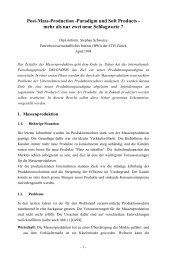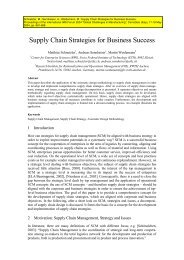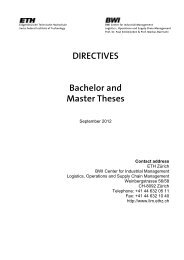The China Venture
The China Venture
The China Venture
Create successful ePaper yourself
Turn your PDF publications into a flip-book with our unique Google optimized e-Paper software.
foreign investors in structuring the finance of their venture, in large part because the RMB is<br />
not fully convertible. Compensation trade is one form of countertrade in which the investor<br />
pays for the cost of machinery or other asset being purchased with items produced by the<br />
machinery itself. Other forms of countertrade exist, such as those in which the asset purchased<br />
is paid off using products other than those produced by the machinery acquired. Using one of<br />
these methods is helpful for companies reducing their use of foreign exchange, but they<br />
should be careful, however, to ensure that this method is cost -effective and that the cost of the<br />
goods which will be used to pay for the asset is less than the cost of taking out a loan. Leasing<br />
of equipment and machinery also provides a suitable alternative for FIEs that do not wish to<br />
pay the full price for the equipment immediately on purchase. Financing the venture by<br />
leasing is also attractive because the fixed lease payments are not subject to the vagaries of<br />
floating interest rates, and because leases are at times much more convenient to obtain and<br />
handle than loans. 67<br />
2.3.3.3 Currency management<br />
International enterprises operate in <strong>China</strong> with a wide range of high volatile currencies. <strong>The</strong>y<br />
are permanently faced with currency risk, which includes transfer and exchange risk. <strong>The</strong><br />
current concern for all investors in <strong>China</strong> is whether or not <strong>China</strong> will devalue its currency.<br />
<strong>The</strong>re seems to be a distinct polarisation between those with a political point of view (who<br />
believe that <strong>China</strong>’s leaders cannot afford to lose face by reversing their public commitments<br />
to maintain current rates) versus those with an economic point of view (who believe that<br />
<strong>China</strong> cannot forever avoid the impact of the regional devaluation in Asia). Most businesses<br />
are not getting into the debate, but are rather reviewing their exposures and trying to hedge<br />
their positions as much as possible. 68<br />
<strong>The</strong> RMB is not fully convertible on world markets and most companies must endure<br />
restrictions on foreign exchange. In addition to that, the exchange rates of the RMB towards<br />
other currencies do not express the real values. FIEs are heavily exposed to a variety of<br />
currencies used for their working capital and cash assets as well as for their balance sheet<br />
values. <strong>The</strong> strict currency control (see also part Exchange Control) accelerates the currency<br />
risk for the FIEs although they are in advantage of more freedom in the area of currency<br />
67 Buxbaum/Gonzalez, 1998, p. 12.<br />
68 de Waal, 1998, p. 19.<br />
48






